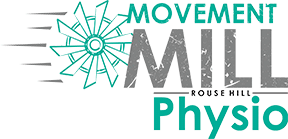Frozen Shoulder by Danny
Frozen shoulder is a diagnosis which is shrouded in mystery in regard to the aetiology (the cause) as well as the names given to it. It is ranked in the top 3 most painful shoulder conditions and commonly affects peoples ability to sleep. Frozen shoulder can vary in the duration of the condition with some people having it for 1 year up until 4-5 years although this is less common. The average length is between 2.5-3 years. There is a 8-20% chance of having the other shoulder experience Frozen Shoulder within a 5 year period but only a 2% chance of reoccurring in the same shoulder.
Currently it is believed that Frozen Shoulder is the most accurate description to describe what happens to the shoulder on a structural level. Other names are linked to the country of origin for instance: in Japan it is known as the 50 year shoulder, in America it is adhesive capsulitis and in capsulite retractile which translates to retracted or contracted capsule. Frozen shoulder commonly affects people between the ages of 40 and 65 and predominantly affects women more than men.
Frozen shoulder is generally characterised by inflammation, thickening and fibrosis of the glenohumeral joint capsule. It mainly affects the front of the shoulder capsule, coraco-humeral ligament and the axillary pouch. Frozen shoulder also has a secondary affect on the shoulder bursaes as well as the shoulder tendons. It is for this reason that diagnosis may take some time in ruling out other shoulder pathologies such as rotator cuff tendinopathies or tears and bursitis. An X-Ray may be needed to rule out more serious pathologies but cannot be used by itself to diagnose Frozen Shoulder.
There are three main phases that the shoulder experiences is freezing, frozen and thawing. In early stage rehabilitation it is important to passively stretch the capsule without putting tension through it. Research has shown that the more intense the exercise is early on, the more pain and longer the duration of the issue.
- In the Freezing phase an individual will gradually start to lose range in their shoulder and experience increasing pain levels.
- During the Frozen stage, the pain will usually subside although the stiffness will remain.
- Finally, the Thawing stage is when patients and Physiotherapists have the best chance to help improve range and function of the shoulder back to normal.
Generally strengthening of the shoulder needs to occur to regain the strength lost while the range has remained reduced. Once an individual no longer has pain at night in their shoulder, it is a good indicator to start working on restoring range and function.
It is best to seek advice from a physiotherapist early on if you are concerned that you may have frozen shoulder. They will be able to help identify any other issues you have including the neck and thoracic as well as provide education on how to manage the condition and what treatment options there are. For more information, please contact the clinic.

